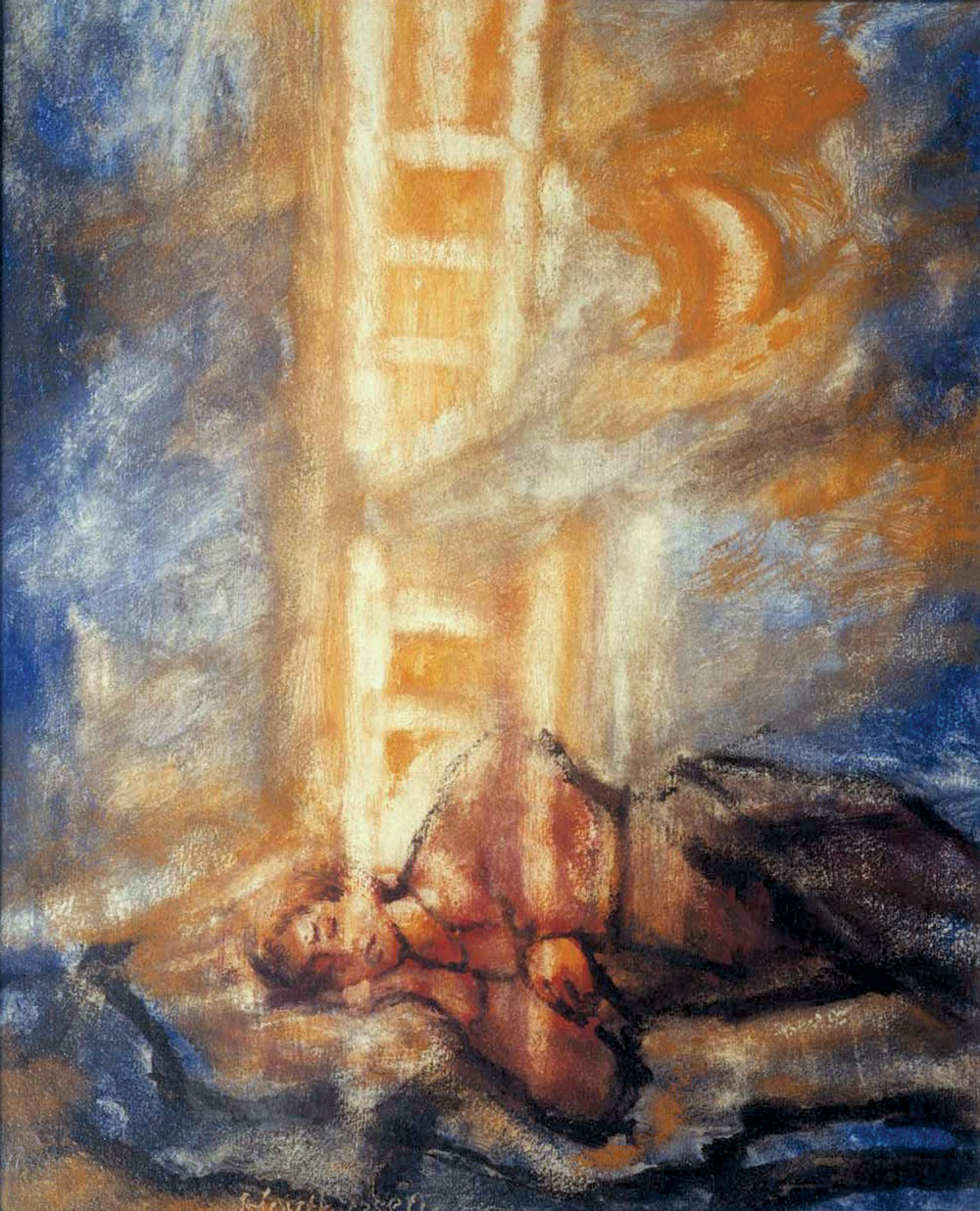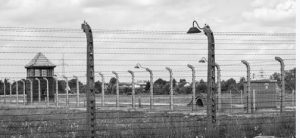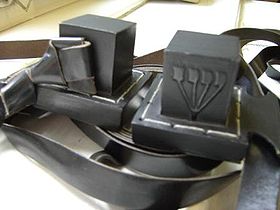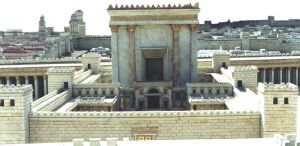
This week’s Sedra, Vayeitzei, starts off with Jacob journeying away from his family after having aroused the anger of his brother Esau for ‘taking’ the blessings from his father Isaac. The verse states that as he was journeying towards Charan, he ‘encountered the place’. Our Rabbis inform us that G-d is called “The Place” (“Hamakom”) and that the Hebrew word ‘encounter’ often means prayer.
The surmise is that Jacob here introduced the maariv (evening) prayer. Previously, Abraham introduced the shacharit (morning) prayer, and Isaac the mincha (afternoon) prayer. The question could be asked – what relevance did each of our forefathers have with the specific prayers? I heard a very interesting answer from the Lutzker Rav in his commentary “Oznayim LeTorah”.
Of all the forefathers, Abraham, knew the greatest contentment, wealth and honour. He had passed ten difficult trials, and became known as “the prince of G-d”. Eventually, after he defeated the four kings (in the first ever world war) he was compared to the sun when it comes out in its might. It was therefore most fitting that he should institute the morning prayer, shacharit. Isaac, although he too enjoyed wealth and honour, was the first Jew to taste the bitterness of exile, to hear Avimelech say “Go away from us!”. Isaac’s whole life was like the afternoon, as the sun was slowly setting. He established mincha, his prayer for mercy to make the approaching ‘night’ more endurable for his decendants. Jacob, on the other hand, had a lifetime of hardship; he had trouble with Esau and Lavan, his daughter Dinah was violated, his sons fought amongst themselves, resulting in Joseph being sold into slavery. He ordained maariv in expression of his steadfast service of G-d. He taught his children that even someone whose world has gone dark must still pray.
After Jacob prayed where his ancestors had prayed (this was the place where Adam, Cain, Abel and Noah brought offerings, and where Abraham bound Isaac), G-d detained him so that he would stay the night there. This Holy place was the future site of the Temple. Jacob takes twelve stones (these were the stones from the altar of the akeidah) and placed them under his head. These stones ‘argued’ for the right to be under Jacob’s head. As well as that, Jacob has the dream about the ladder, and is also shown a vision of the destruction of the Temple.
These twelve stones corresponded to the twelve tribes that G-d had promised Abraham. Jacob said to himself “My grandfather Abraham had a wicked son, Yishmael. If these twelve stones unite, then I know that I shall establish twelve tribes who will be tzaddikim, and all united” – and as we know, the stones did just that. We see from here that Jacob had been worried – neither his grandfather or father had established these tribes. G-d showed him that the twelve sons that he will have will quarrel like the stones, resulting in the destruction of the Temple, but in the end they will unite. The strife symbolised by the quarreling stones is a disease which spreads from man’s world to that of the angels – as symbolised by the ladder. Lack of unity, therefore, is not simply confined to our earthly existence, but has ramifications in the upper spheres. Remember that next time you shout at the man in the fish shop.
G-d promises Jacob in the dream that he would protect him wherever he goes. As soon as Jacob awoke he said “Surely G-d is present in this place and I did not know!” In the same way, when we (his decendants) awake from sleep, we acknowledge G-d’s existence by reciting the Modeh Ani prayer.
When Jacob arrived in Charan, he noticed that the shepherds were all gathered around a well whose opening was blocked by a tremendous stone. The well had purposely been covered with a big boulder because at that time, all the other water sources of the city were contaminated and the entire city was dependent on this well for water. The inhabitants therefore decided to place a stone over its opening so that access to it should be limited, and the stone was rolled off by the united efforts of all the shepherds. Jacob addressed the shepherds in a courteous and friendly manner, asking them, “My brothers, where are you from?”
When they told him they were from Charan, he asked them if they knew Lavan. They replied that they did – Jacob’s uncle was famous around Charan. Jacob wanted to find out more about him, but the shepherds grew impatient, and said, “Here is Rachel, his daughter. Ask her!” Jacob rebuked them for wasting time and not tending the flocks. They replied that they were waiting for everyone to arrive to roll the stone off the well. When Jacob saw Rachel, he removed the stone from the well as easily as a person removes a bottle cap, and the water flowed everywhere. He realised that this was G-d’s sign that He had sent him his mate. He approached Rachel and kissed her. The shepherds had observed this.
At that point, Jacob cried. There are a few reasons for this:
· He was hurt at being falsely accused of impure thoughts with his kiss, which was motivated solely by spiritual considerations.
· He saw (with Divine Inspiration) that Rachel would die at an early age and not be buried together with him.
· He had arrived empty-handed at Lavan’s house, and feared that Lavan would refuse to give his daughter to a pauper.
Why did Jacob foresee the death of Rachel before he had even married her? On their wedding day, man must turn a spiritual eye towards the day of death; he assumes the burden of marriage because he is mortal, and must hurry to produce offspring to replace himself.
Jacob asked Rachel to marry him. She agrees, but says that her father Lavan is a swindler, and will swap her for her older sister Leah. Jacob told Rachel various signs by which he would recognise her. They both go to Lavan. He runs out to greet Jacob, sure that he was to have come with lots of wealth (like Eliezer, servant of Abraham). He was disappointed when he saw Jacob empty-handed. He hugged Jacob, sliding his fingers under Jacob’s garments to check for hidden jewels. Then he kissed Jacob, and checked his mouth, too. No joy there, either. Jacob relates how he had purchased the birthright for a bowl of lentil soup, and taken his father’s blessings in stealth. Lavan was greatly pleased with this tale, and thought, ‘If Jacob is capable of tricks like that, he really is my relative!’ He employs Jacob as a shepherd.
After seven years, Lavan arranges a wedding feast for Jacob. He plans to cheat Jacob by replacing Rachel with Leah. When the bride is about to be brought in, all the candles are extinguished. Lavan’s excuse is “In our country, people are modest”. Why did G-d allow Lavan to carry out his cunning plan? G-d wanted to reward Leah by making her the wife of Jacob because for many years she had prayed to G-d that she should be able to marry a tzaddik (righteous person). This shows us how powerful prayer is – Leah not only brought about her marriage to Jacob instead of Esau (as was originally planned), but she even married married him before her sister did!
Lavan then says that if Jacob wants to marry Rachel, he must work another seven years. Jacob agrees, and works so hard that during the entire fourteen years of work he never once lay down to sleep a full night. He never once slacked off – his last year of work was performed with the same enthusiasm and dedication as the first year. During these years, he composed many chapters of the book of Tehillim (Psalms). These were forgotten, but were written down again by King David.
Leah gives birth to four sons, and Rachel remains childless. Jacob marries the two maidservants Bilha and Zilpa, and has a further six sons, followed by a daughter, Dinah. Rachel had one son, Joseph, and later Benjamin. Jacob wishes to leave with his family, but is detained by Lavan, who tries to deprive Jacob of his wages by changing their agreement a total of one hundred times. In addition, he practiced ten different types of witchcraft on Jacob in order to destroy him, but G-d was protecting Jacob so this sorcery proved ineffective. Finally, Jacob emerged tremendously wealthy. Jacob flees with his family and Lavan pursues him. Eventually Lavan pursued Jacob and tried to kill him, but eventually asks Jacob to make a covenant with him, to which Jacob agrees. Lavan departed with kisses and blessings to his grandchildren. This was an outward show – he had evil thoughts in his heart at the time. When Lavan returned to his house, he became a pauper once more (his riches had only come through Jacob). The night he had pursued Jacob, burglars arrived and robbed him of all he possesed. He thus realised that he had only been blessed with wealth on Jacob’s account.
As Jacob entered Israel, he was encountered by two camps of 600,000 angels. One group was coming to take leave of him; these were the angels of the diaspora who had accompanied him outside Israel. The second lot were the angels of Israel who would now stay with him. They sang and danced before him on his return to Israel, the Holy Land. The question is asked, why did Jacob deserve such a grand reception?
Jacob had spent a full twenty years in the house of Lavan the sorcerer and idol-worshipper, the leader of his ‘trade’. In spite of the prevailing atmosphere of impurity, Jacob fully overcame his evil inclination, even in Lavan’s house. When he returned to Israel, he was the same righteous man as when he left, spritually perfect. He was therefore welcomed by the hosts of the Shechina (G-d’s Glory). Jacob later testified to himself, “I lived with Lavan, but I still upheld all 613 mitzvot!” For this extraordinary achievement, he surely merited the honour of being met by two massive camps of angels.
Yet another Ten Things that you probably never knew about Abraham:
1 45,000 princes, 80,000 warriors clad in coats of mail and 60,000 sword bearers attacked Abraham when he was thrown into the fiery furnace (Sanhedrin 95b).
2 G-d showed Abraham Gehinnom (hell), the giving of the Torah, the splitting of the Red Sea, and the order of the sacrifices. He [also] showed him the four kingdoms that were destined to subjugate his decendants (Mechilta Yisro, Bachodesh 9).
3 Abraham made the evil inclination good (Yerushalmi Berachot 9:5).
4 Abraham ate even non-sacrificial meat in ritual purity (Bava Metzia 87a).
5 A precious stone hung from Abraham’s neck. Every sick person who saw it would immediately be cured (Bava Basra 16b).
6 [regarding the three angels] To Abraham, who was accustomed to seeing angels, they appearad as people; but to Lot, who was not, they appeared as angels (Bereishis Rabbah 50:2).
7 [Abraham’s] fear was upon them. Michael and Gabriel [two of the angels] trembled (ibid 48:14).
8 Abraham, the greatest man on earth, served angels whom he took to be Arabs (Sifrei Eikev 38).
9 When Abraham went to rescue Lot, not a foot of all the people who were with [him] so much as became dusty (Peskita Rabbasi, addition 82:20).
10 Despite all the mitzvot that Abraham did, he was not called perfect until he underwent circumcision (Nedarim 31b).
Many thanks to my dear parents-in-law Ray and Loretta for the use of their computer and email system for this week and last week’s Gur Aryeh. They should live and be well.
SHABBAT SHALOM





